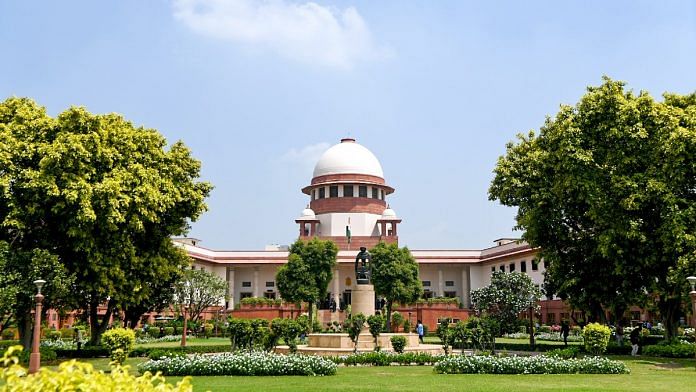New Delhi: The Supreme Court Wednesday criticised the manner in which television channels conduct debates, observing that a methodology should be laid down for such discussions to ensure that they do not fuel hate speech.
A bench of justices K.M. Joseph and Hrishikesh Roy also chastised the Centre for not being “proactive” in addressing the rising phenomenon of hate speech and instead treating it as a “trivial matter”.
“Where is our nation headed? Hate speech spreads poison,” lamented Justice Joseph before suggesting that the vacuum in legislation be filled with guidelines, as was done in the Vishaka case, which remained effective for more than two decades before the law on sexual harassment at the workplace was notified.
The top court was perturbed when informed that the central government is yet to take a stand on Law Commission’s 2017 report that identifies criteria to ‘determine hate speech’.
The judges also felt that the Centre is being a “mute witness” to hate speech incidents and asked it to assist the court in addressing the problem.
“Be ready to assist the court. Do not take it to be an adversarial issue,” the court told Additional Solicitor General (ASG) K.M. Nataraj, while granting him two weeks to file a report based on responses the Centre has received from 14 states on action taken to deal with instances of hate speech.
The court was hearing advocate Ashwini Kumar Upadhyay’s petition to bar candidates accused of delivering hate speeches from contesting elections. The petition also seeks that directions be issued to the Centre to define hate speech, in line with the suggestions listed in the Law Commission’s report.
The bench also indicated that, in the absence of a specific law, it might lay down guidelines — as was done in the Vishaka judgment that had devised a mechanism to deal with incidents of sexual harassment at the workplace — to define the contours of hate speech. The guidelines, it said, would put in place an institutional mechanism to tackle complaints of hate speech.
Also Read: No law on poll hate speech so acting under IPC & Representation of People Act, EC tells apex court
‘Freedom of press, listener’
Simultaneously, the bench added, it would explore devising a methodology on how TV debates should be conducted so that they do not further hate speech.
“If the anchor is going to take a lion’s share of the time of the debate, if the question of the anchor is so longish and time given to the person responding is short and even in that short period, all the time he is run down, made some kind of a rogue, is not fair. You have to be fair to everyone. It all has to be done fairly,” said Justice Joseph, emphasising that a system should be put in place so that there is “real freedom of the press” as well as that of the “listener” so that the latter does not go astray.
When counsel for the National Broadcasting Association (NBA) informed the bench that it had a system to penalise violators, the judges remarked: “But the problem still persists. You may have given 4,000 orders, but what is the effect of such orders?”
“Unless the consequences of infringement come hard on the person who is violating, how will the message go? This chicken feed-kind of penalty is flimsy, their pockets won’t even get a little tear there,” said Justice Roy.
The court added that political parties will “come and go”, but institutions like the media are there to stay. “Without a totally free press, no nation can go forward. Therefore, we should have true freedom for the press,” the court remarked.
The bench later highlighted the need for an “effective legal framework” to tackle instances of hate speech, noting that it was “unfortunate” how the nation was feeding on such conversations.
(Edited by Amrtansh Arora)
Also Read: Polite, unofficial warnings can reduce hate speech on Twitter, New York University study finds



